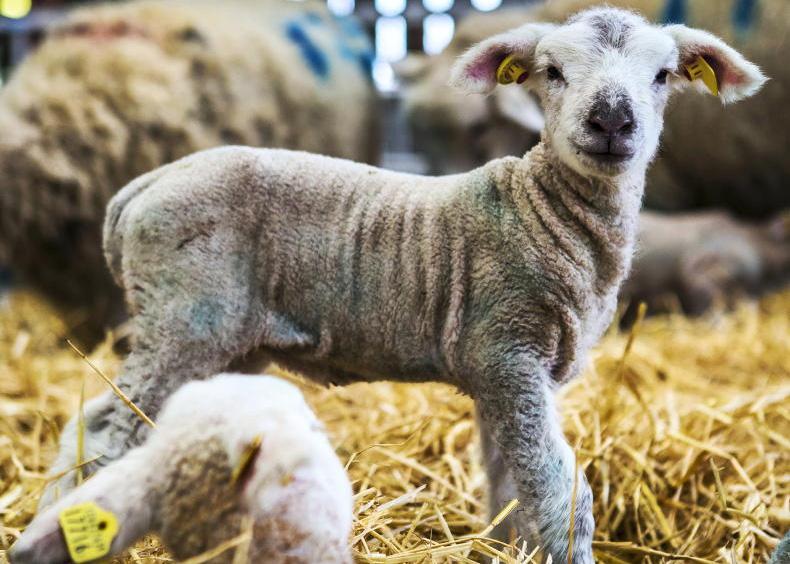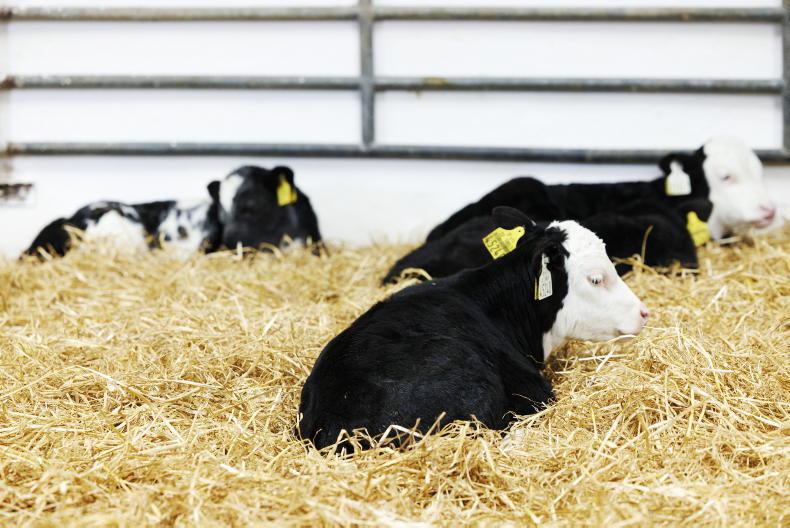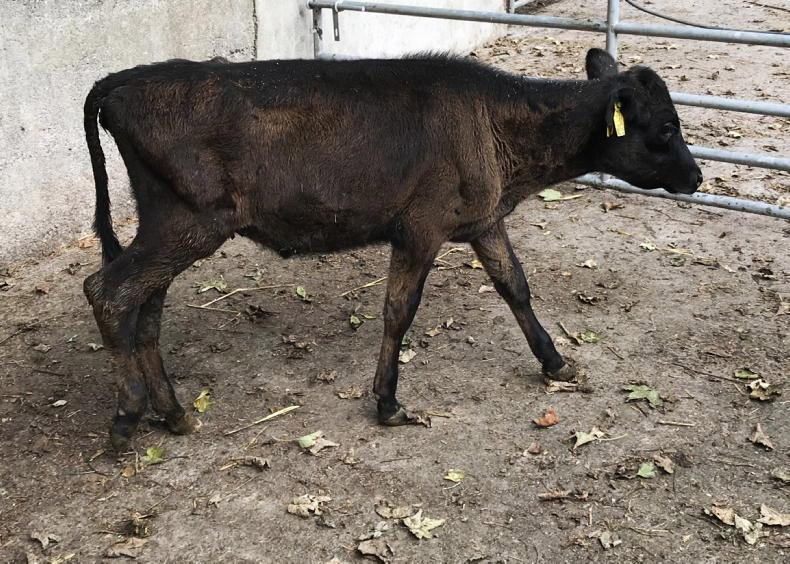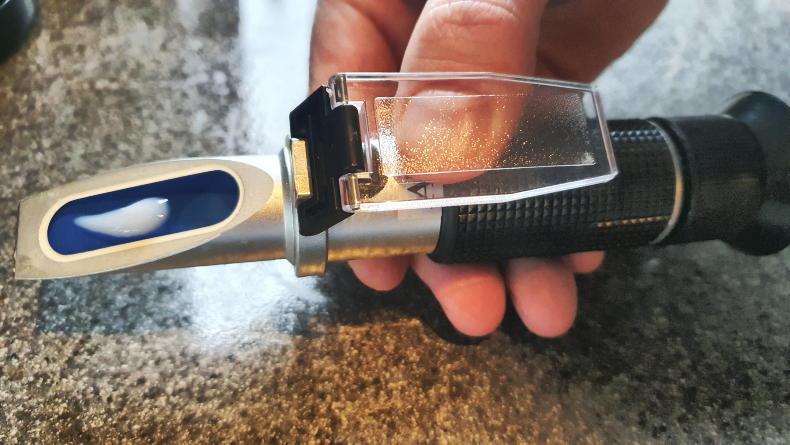Beef Welfare Scheme: I’ve had a few calls from farmers that are autumn-calving, in relation to the Beef Welfare Scheme and not missing out on any payments on autumn-born calves that are sold. The weanling trade is going really well at the moment and some farmers feel that selling weanlings earlier might be a better option this year. There will be some changes to the scheme in 2024 and we have asked the Department of Agriculture has the scheme been finalised – we understand it hasn’t.
The advice is to make sure you weigh cows and calves on the same day before they are weaned, to be compliant with the Suckler Carbon Efficiency Programme. Remember, in the Beef Welfare Scheme calves must be meal-fed for two weeks after weaning before they can be sold. The meal feeding criteria is not likely to change, so go with last year’s rules if in doubt. Calves born between 1 July 2023 and 30 June 2024 will be eligible for this year’s scheme.
Scour prevention: While it’s early in the calving season, a few tips and preventatives could help reduce time and labour required tending to sick calves. Number one is colostrum. Adequate colostrum is key to setting the calf up to be able to fend off any disease challenges in the next few weeks, including scour and pneumonia. Aim to get 3l into calves within two hours of birth. The sooner the better. Colostrum from its mother is best and is a must if vaccinating for scour. If a calf has had any assistance or pull, it’s best to feed it in case its delayed getting to its feet.
Lots of bedding is also essential, preferably straw to give that nesting effect. Calves need a warm, dry bed. Shed temperature needs to be between 10°C and 15°C for newborn calves, with no low-level draughts. Vaccination has a role to play on some farms.
Hygiene is very important around calving time. A good tip is to place a footbath outside the calving shed, so you aren’t bringing disease into susceptible newborn calves. Keep two stomach tubes, one for colostrum for newborn calves and one for sick calves. Calf jackets can be really helpful in nursing a calf back to full health.
Looking after yourself: There are a really busy few months coming up ahead on suckler and sheep farms. Juggling a job, a farm, a family and throw in a few night calvings and calf scours – it can be easy to let things get on top of you. Make sure you are getting a good night’s sleep, if not every night, at least a couple of nights in the week.
Some farmers find feeding cows late at night will help in reducing the number of night-time calvings. Eating properly is also important. Make sure you are getting at least one hot meal per day and take time to rest during the day if you have been out on the night shift. Don’t be afraid to ask for help. There are lots of people in the locality who would be only too glad to help out if you are under pressure.
On the other hand, if you see someone struggling, call in to them for a chat or a cup of tea, you don’t know how important those 20 minutes could be.
Beef Welfare Scheme: I’ve had a few calls from farmers that are autumn-calving, in relation to the Beef Welfare Scheme and not missing out on any payments on autumn-born calves that are sold. The weanling trade is going really well at the moment and some farmers feel that selling weanlings earlier might be a better option this year. There will be some changes to the scheme in 2024 and we have asked the Department of Agriculture has the scheme been finalised – we understand it hasn’t.
The advice is to make sure you weigh cows and calves on the same day before they are weaned, to be compliant with the Suckler Carbon Efficiency Programme. Remember, in the Beef Welfare Scheme calves must be meal-fed for two weeks after weaning before they can be sold. The meal feeding criteria is not likely to change, so go with last year’s rules if in doubt. Calves born between 1 July 2023 and 30 June 2024 will be eligible for this year’s scheme.
Scour prevention: While it’s early in the calving season, a few tips and preventatives could help reduce time and labour required tending to sick calves. Number one is colostrum. Adequate colostrum is key to setting the calf up to be able to fend off any disease challenges in the next few weeks, including scour and pneumonia. Aim to get 3l into calves within two hours of birth. The sooner the better. Colostrum from its mother is best and is a must if vaccinating for scour. If a calf has had any assistance or pull, it’s best to feed it in case its delayed getting to its feet.
Lots of bedding is also essential, preferably straw to give that nesting effect. Calves need a warm, dry bed. Shed temperature needs to be between 10°C and 15°C for newborn calves, with no low-level draughts. Vaccination has a role to play on some farms.
Hygiene is very important around calving time. A good tip is to place a footbath outside the calving shed, so you aren’t bringing disease into susceptible newborn calves. Keep two stomach tubes, one for colostrum for newborn calves and one for sick calves. Calf jackets can be really helpful in nursing a calf back to full health.
Looking after yourself: There are a really busy few months coming up ahead on suckler and sheep farms. Juggling a job, a farm, a family and throw in a few night calvings and calf scours – it can be easy to let things get on top of you. Make sure you are getting a good night’s sleep, if not every night, at least a couple of nights in the week.
Some farmers find feeding cows late at night will help in reducing the number of night-time calvings. Eating properly is also important. Make sure you are getting at least one hot meal per day and take time to rest during the day if you have been out on the night shift. Don’t be afraid to ask for help. There are lots of people in the locality who would be only too glad to help out if you are under pressure.
On the other hand, if you see someone struggling, call in to them for a chat or a cup of tea, you don’t know how important those 20 minutes could be.










SHARING OPTIONS